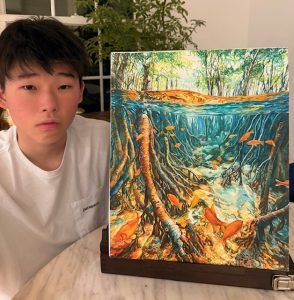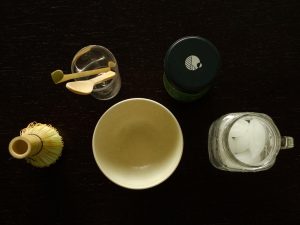Meet the Teacher: Dr. Smith
June 20, 2022
In April of 2022, Dr. Ericka Smith began teaching at BCA, taking over the position that was formerly filled by Dr. Pergolizzi before his retirement. Dr. Smith now teaches AMST sophomores Neuroscience and also helps several students with their research projects. The Academy Chronicle recently sat down with her to get to know her and what her time has been like in BCA so far.
AC: Can you tell us a little about yourself? (Qualifications, interests/passions, what was high school or college like?)
DS: I have always been interested in science and I love animals, so growing up I originally wanted to be a veterinarian. In high school, I gravitated toward the sciences and fell in love with AP biology. To prepare for my anticipated career, I took two years of Latin with the goal of preparing myself for the scientific terms I would encounter in veterinary school.
However, as I progressed through high school and college, my passion for biology continued to grow and developed into a passion for cancer biology, specifically breast cancer biology. While my love of animals has never subsided, breast cancer became a huge part of my life when several family members of mine were diagnosed and unfortunately died from their disease. It was in college at I made the choice that I wanted to be a cancer researcher.
In 2018, I graduated from the Medical University of South Carolina with a Ph.D. in Biomedical Sciences. My dissertation entitled “Non-canonical PI3’Kinase Signaling Regulates AKT3 Activity in PTENnull Basal Breast Cancer Cell Lines” focused on understanding how the loss of the tumor suppressor, PTEN, contributed to oncogenesis and resistance in breast cancer cell lines. Obtaining my doctorate was the most challenging experience I have ever faced, but it taught me that obstacles are often opportunities if you approach them with a positive attitude.
When asked specifically about BCA, Dr. Smith shared insights into why she chose BCA, her first impressions of this school, and the classes she currently teaches as well as the classes she will teach next year.
AC: What made you choose BCA?
DS: The reason why I chose BCA boils down to the faculty and students that I interacted with before accepting this position. BCA felt like home. Everyone was so warm and welcoming, and I decided that I wanted to be a part of a culture that fostered community and excellence.
AC: What are some classes you teach? What is your role as a faculty member in BCA?
DS: Currently I am teaching Neuroscience, but next year I will be teaching a newly designed Experimental Biology course. I will also be designing an elective, Introduction to Cancer Biology, which will allow me to share my passion for this topic and introduce students to key concepts in this field. During my scholastic journey, I have had many influential teachers that have molded me and encouraged me to walk my path. Therefore, I feel that my role as a teacher is not only to inform students but to be a support that allows them to learn, grow and develop into critical thinkers that can tackle any obstacle set in front of them.
AC: What were your first impressions of BCA? How has your experience in BCA been so far?
DS: My first impression of BCA is that this is an amazing place that offers outstanding opportunities to a group of even more outstanding students.
AC: What would you like to improve or add to BCA?
DS: Hmmm. That is an interesting question and one that I feel will take time for me to truly know the answer to. I am the type of person that likes to improve processes and increase efficiencies. But, for me to adequately do that, I must first take time to observe and as assess before I can know which areas would be best served by my input.
When concluding the interview, Dr, Smith provided some advice for both students interested in pursuing a medical career and those in research. She then talked about BCA’s research program and how the program could be improved.
AC: What is some advice for students interested in pursuing studies in research or other medical-related fields?
DS: The advice I would provide to students that are interested in pursuing careers in research and medicine is to know your “why”. Why are you pursuing that field? The research and medical fields are very challenging, therefore, knowing your “why” will provide the intrinsic motivation you will need whenever you face challenges. Obstacles will come, but it’s how you respond to those obstacles that will determine your outcome.
AC: What research opportunities do BCA students have? What additional ideas would you like to implement in BCA’s research program
DS: Research at BCA affords students the opportunity to pursue research questions that will pique their passion while learning how to apply their knowledge of the scientific method in the process. Students have the opportunity to develop research projects focusing on a wide array of topics including, but not limited to, cellular differentiation, mechanisms regulating cancer progression, and genomic changes regulating cellular processes. The goal of research at BCA is to develop and foster a love of science that students will carry with them throughout their careers. One thing that I would like to implement in BCA’s research program is a course designed around pertinent questions in cancer biology which utilizes the Next Generation Sequencing technology that we have available to us at BCA.
A special thank you to Dr. Smith for taking the time to talk with the Academy Chronicle. On behalf of the entire BCA community, the Academy Chronicle would like to extend you a warm welcome.




